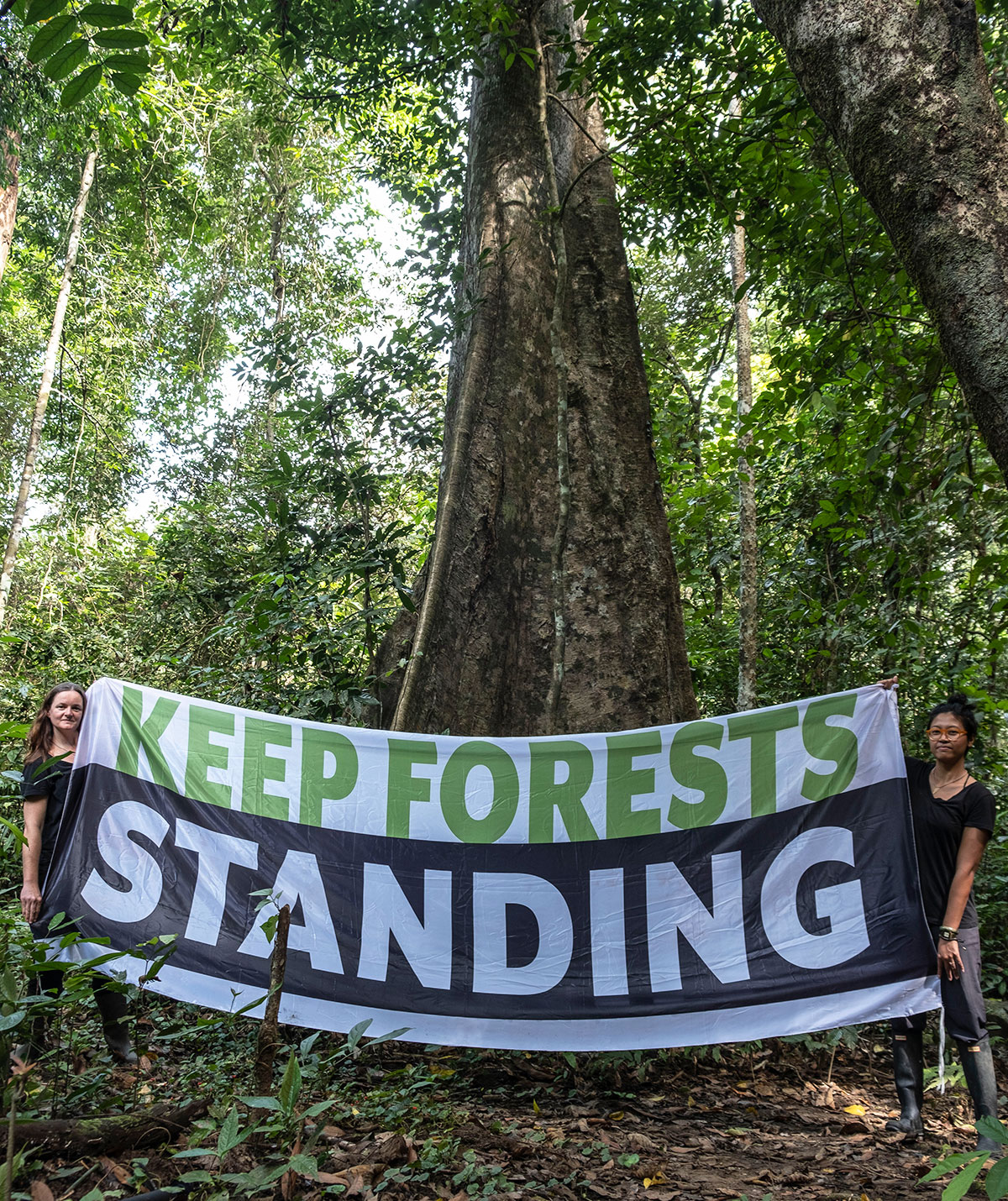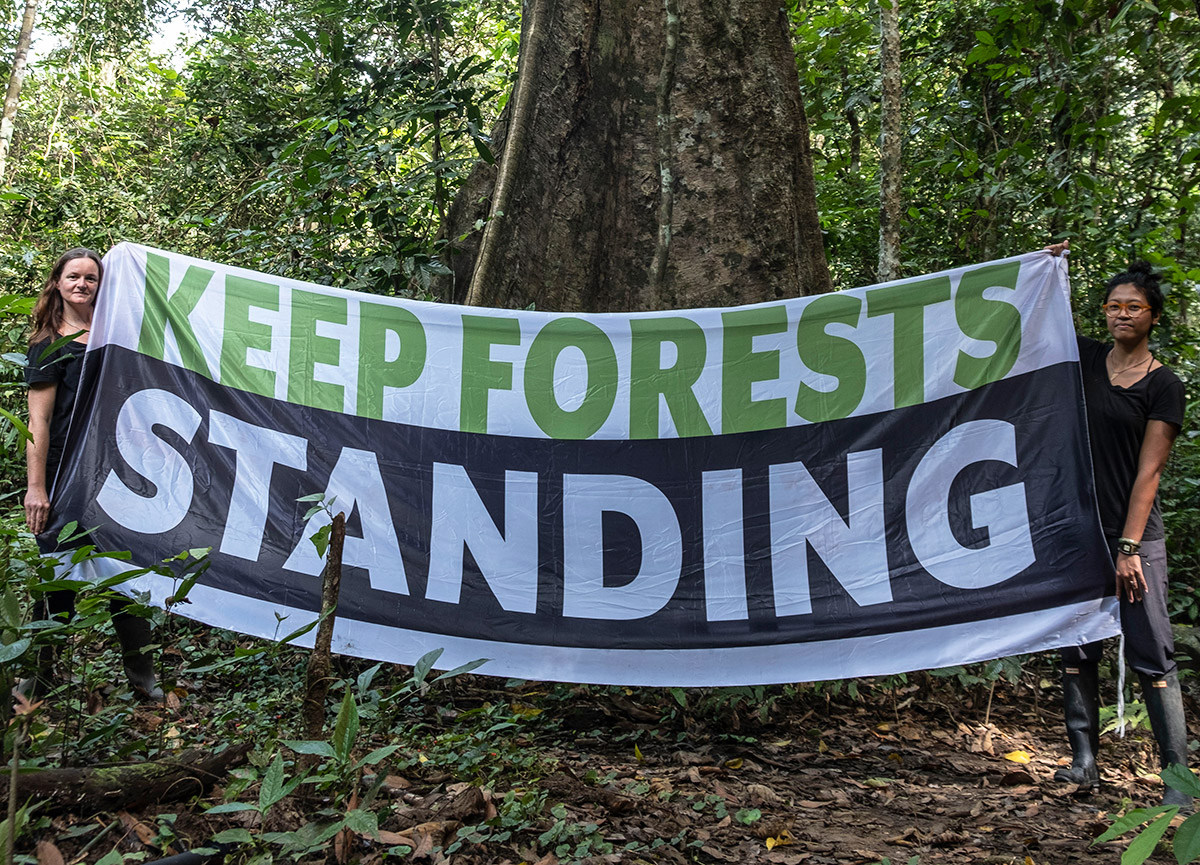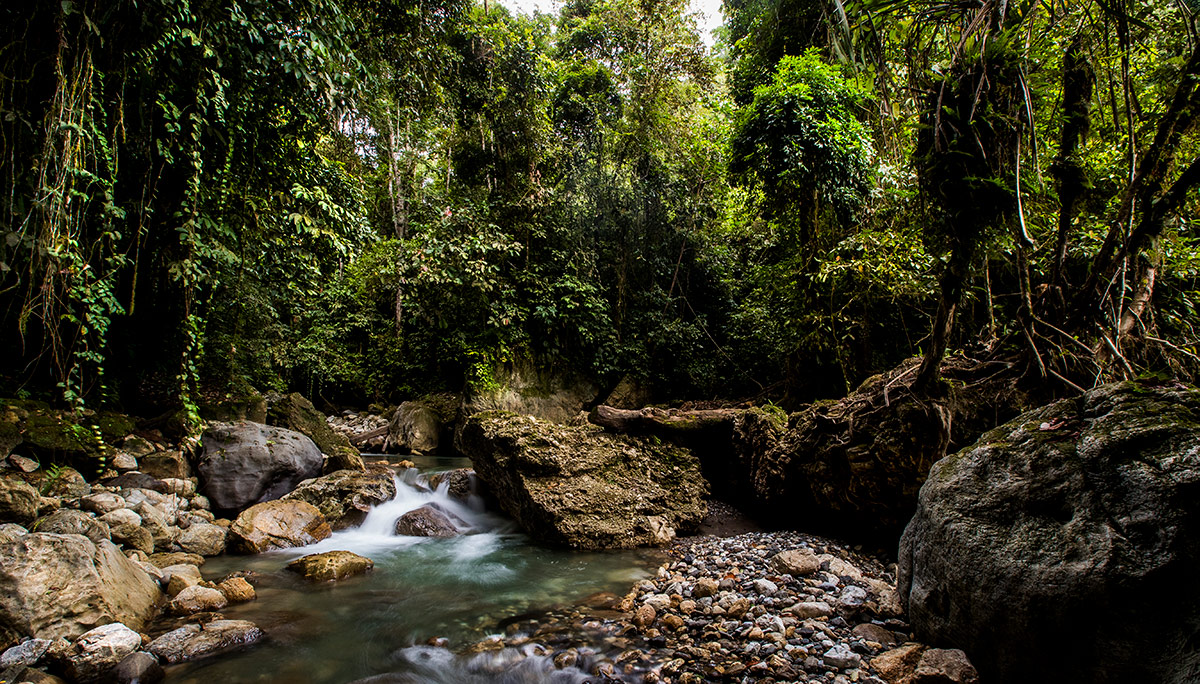
Rainforests around the world are home to thousands of Indigenous and local communities — communities who have successfully protected the forests and depended on them for generations. The rainforests of the Amazon, Congo, and Indonesia, in particular, are home to incredible biodiversity. From jaguars to gorillas to elephants, these jungles are home to more species than any other ecosystem. They also serve as one of our best defenses against climate chaos. That makes them the most priceless places on Earth. So why are corporations making profits off their destruction?
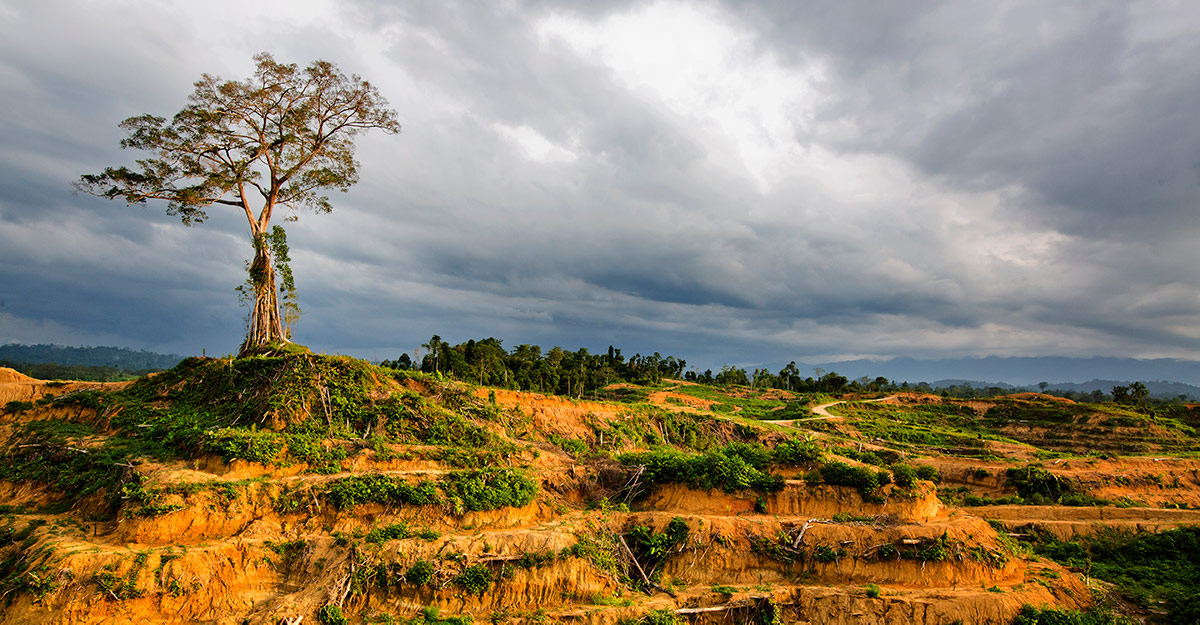
Today, we’re putting 17 brands and banks on notice: end deforestation and the expansion of logging and industrial agriculture into the last tropical rainforests of Indonesia, the Amazon, and the Congo Basin, in particular areas traditionally owned and managed by Indigenous Peoples and local communities, now. Read our new report detailing how and why we must Keep Forests Standing here.
The choices made by these 10 brands and 7 banks may make the difference for the world’s rainforests. These 17 corporations have some of the greatest influence over rainforest destruction today. Over the last decade, many have adopted corporate commitments to end deforestation and uphold Indigenous rights by 2020, but all are failing to meet those commitments. These brands and banks are still providing the market demand and financing for continued logging, deforestation and the building of roads through intact rainforests around the world. All for cheap, forest-destroying commodities like palm oil, pulp and paper, beef, soy, and cocoa. Indonesia’s rainforests, in particular, have a critical role to play in the fight against global climate change, the crisis of global biodiversity loss and the fight for Indigenous land rights.
The expansion of industrial agriculture is not only one of the most significant drivers of deforestation, it is also a significant driver of violence towards Indigenous Peoples. We must support Indigenous and local communities in their fight to gain legal rights to their land and ensure their ability to protect and manage it. Supporting their rights to decide how to manage their lands and livelihoods will help to safeguard the vast majority of the world’s biodiversity from extinction because it’s proven that strong and organized local and Indigenous communities are some of the most effective forest defenders in the world.
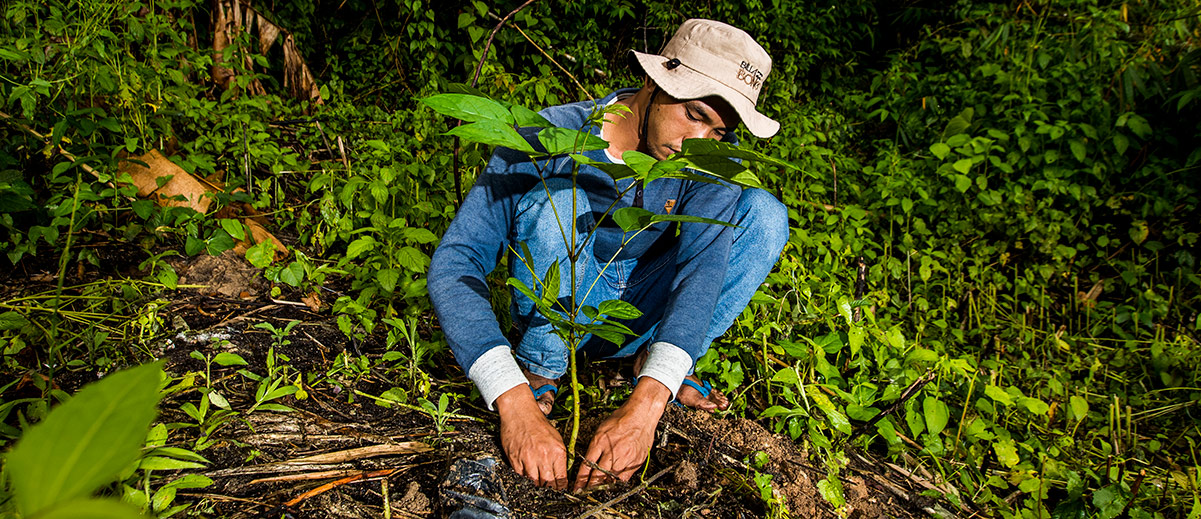
The 10 brands — the multinational, fast-moving consumer goods companies of Colgate-Palmolive, Ferrero, Kao, Mars, Mondelēz, Nestlé, Nissin Foods, PepsiCo, Procter & Gamble, and Unilever — have been complicit in the destruction of millions of hectares of tropical rainforests and peatlands in Indonesia through their sourcing from, or investments and business deals with, forestry and agribusiness giants.
The bulk of the global financing for the Southeast Asian forest-risk sector originates from banks headquartered in Asia but banks in Europe and the United States are also fueling the problem. In the critical year of 2020, Rainforest Action Network is highlighting the role of seven influential banks — one bank from each financial hub. They are the financial powerhouses of Mitsubishi UFJ Financial Group (MUFG), Bank Negara Indonesia (BNI), CIMB, Industrial and Commercial Bank of China (ICBC), DBS, ABN Amro, and JPMorgan Chase.
All of these corporations need to come clean about their full impact on forests and take responsibility for it. And it’s up to us, all of us, to hold them accountable.
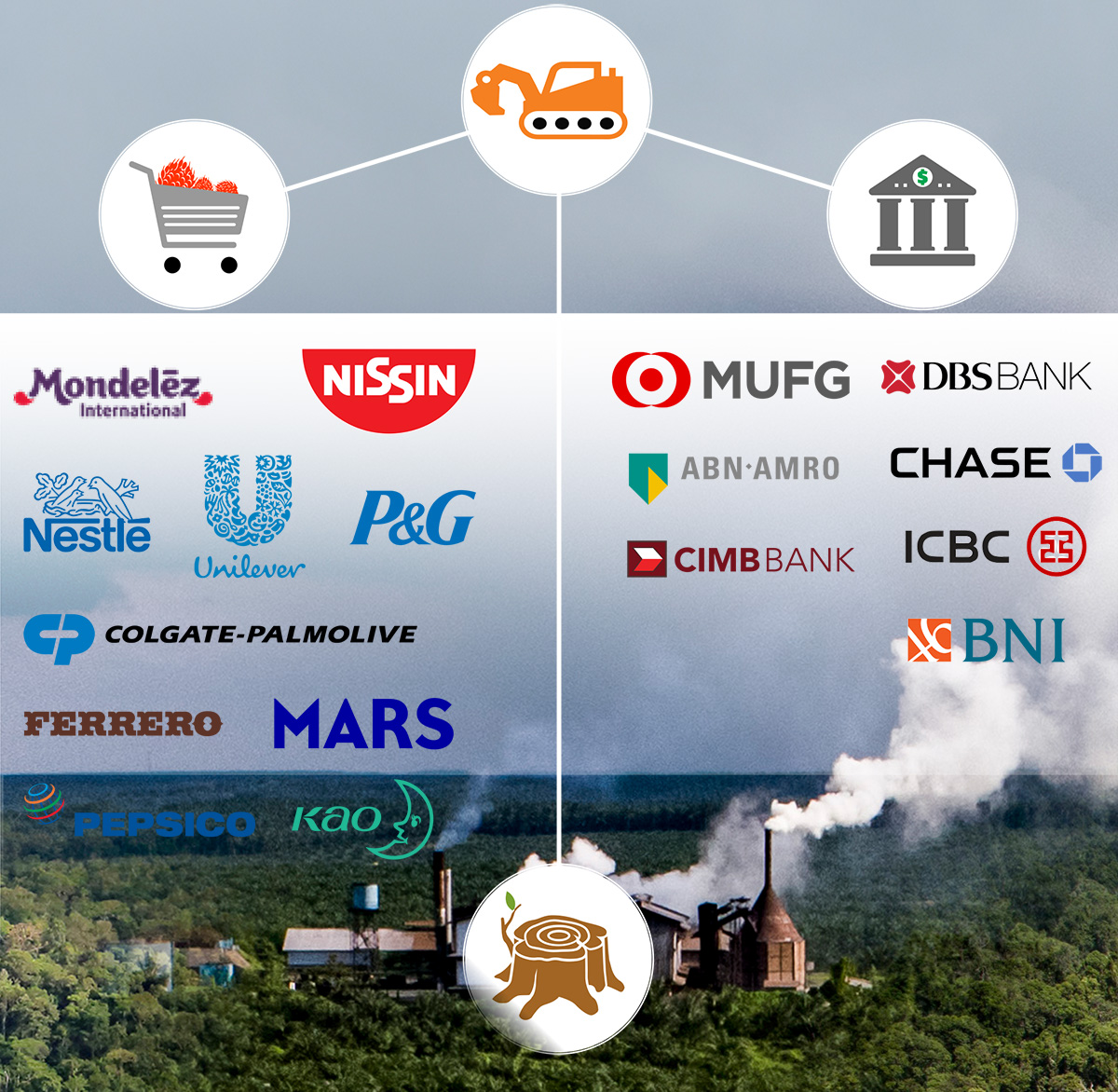
We all depend on forests. This is as true for the 1.6 billion people who live in the world’s 300 largest cities, as it is for the estimated 1.6 billion people worldwide who either live in forests or depend on them for their livelihoods. And it’s one of the reasons a global group of scientists have concluded that, “Our planet’s future climate is inextricably tied to the future of its forests.”
We must keep forests standing to secure a stable climate, protect the world’s remaining biodiversity, and support the thriving communities of millions of Indigenous Peoples.
